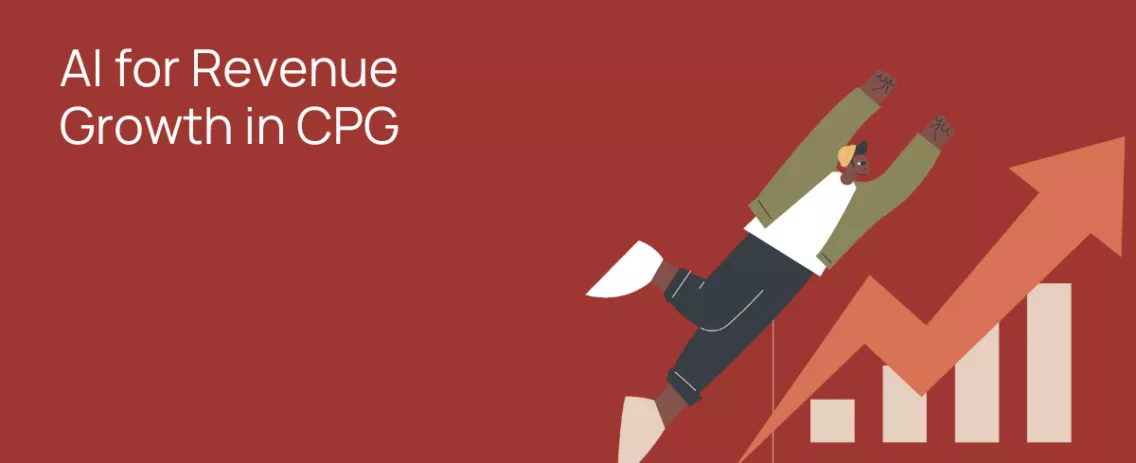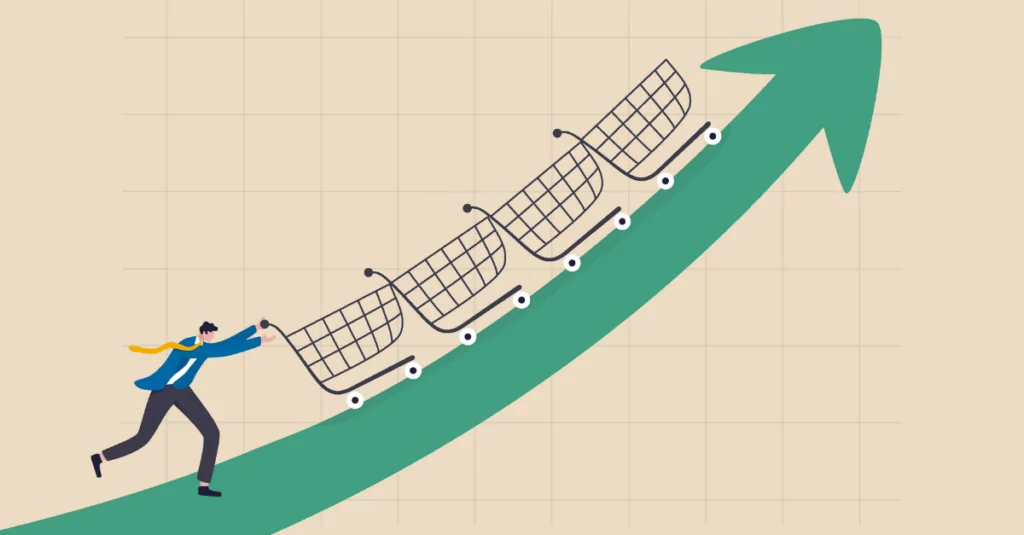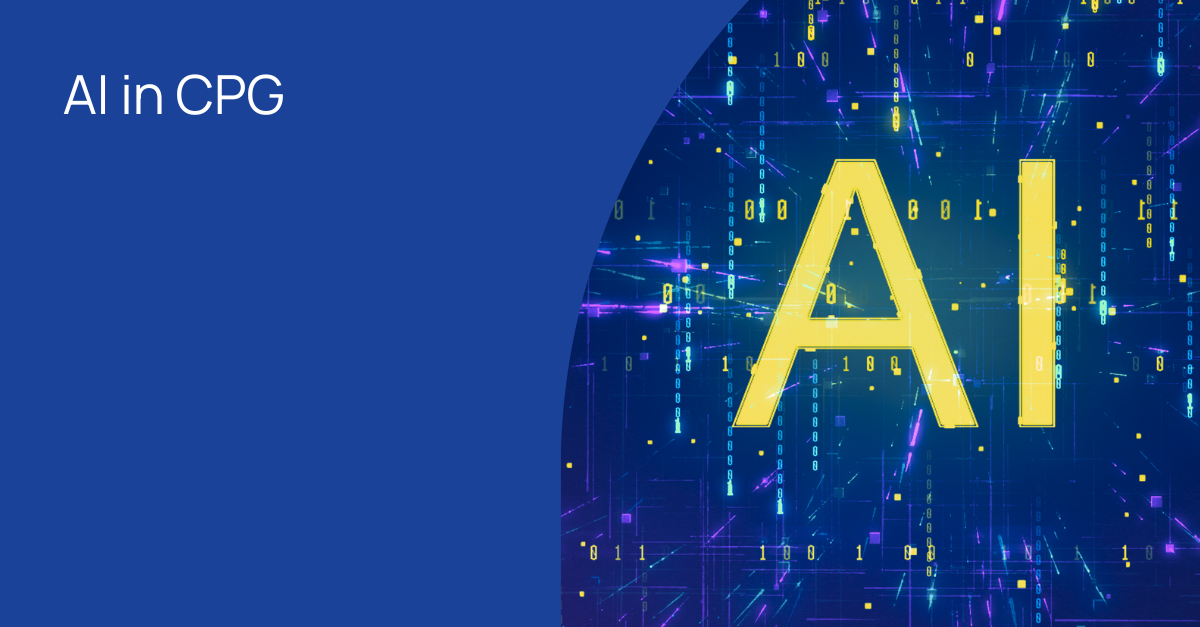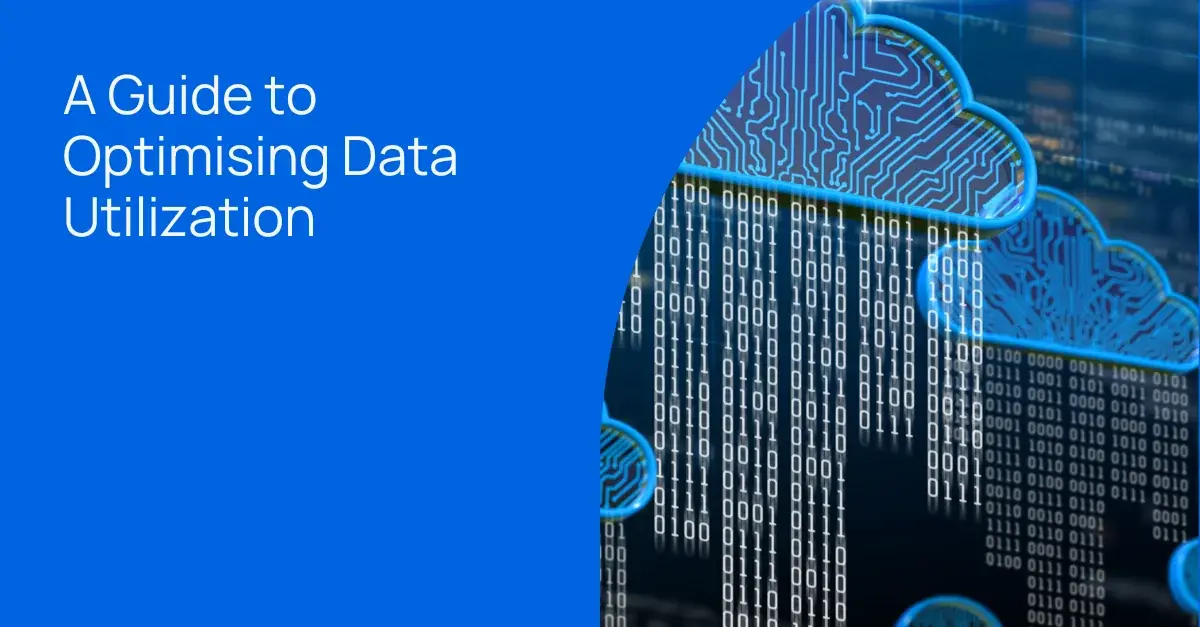
Where does AI fit in CPG revenue growth? Everywhere
The consumer packaged goods (CPG) industry is experiencing a paradigm shift as forward-looking companies adopt artificial intelligence (AI) technologies. It has become clear that the technology offers significant potential for revenue growth management and optimization across CPG firms’ business operations.
In this blog, we explore the power of AI in CPG in driving revenue growth and discuss how it can improve demand planning, promotional planning, pricing negotiations, and campaign creation. We also delve into the ethical implications of AI in CPG and how businesses can mitigate the risks associated with this technology.
Unlocking the Potential of AI in CPG:
AI is a transformative force, revolutionising traditional approaches to revenue growth. Organisations worldwide recognise the importance of leveraging AI in CPG not only to improve efficiency and consistency in critical business processes but also to optimise results and create better promotions.
Employing AI-driven solutions means businesses can enhance demand planning, promotional planning, and pricing and contract negotiations. This ultimately leads to more targeted and effective commercial strategies and revenue-boosting initiatives.
The data-driven insights AI provides mean companies can make informed decisions that maximise their revenue potential and stay ahead of the competition in a rapidly evolving market. With its ability to analyse vast amounts of data and identify patterns, AI in CPG has become a powerful tool in driving revenue growth and achieving strategic business objectives.
Consistency over Human Subjectivity:
One of AI’s fundamental strengths is its ability to provide consistency, ensuring stability in decision-making processes. While humans are susceptible to biases and personal beliefs, AI in CPG offers a reliable and objective approach to decision-making. While it may not always outperform humans, AI eliminates the inconsistencies that arise from subjective influences.
Furthermore, in an industry with high employee mobility, a consistent approach means that an organisation is less at risk of losing key knowledge when team members switch positions.
Enhancing Effectiveness and Predictability with AI in CPG:
To really harness AI’s potential for revenue growth, it’s vital to identify key areas for optimisation in commercial processes such as demand planning, promotional strategies, and pricing and contract negotiations. The technology offers valuable insights and strategic guidance through advanced scenario modelling and data analysis. This empowers decision-makers to make informed choices, improve efficiency, cut costs, and increase margins.
Moreover, businesses can fine-tune marketing approaches, personalise offers, and optimise overall revenue generation. Embracing AI’s multifaceted abilities will drive enhanced effectiveness and predictability, paving the way for a new era of success.

Optimising Business Activities:
AI can be applied across various areas to optimise business activities and drive revenue growth. For instance, it can be used to automate forecasting for predictable products, allowing planners to concentrate on outliers and new product introductions, while also incorporating consumption-based data to enhance the forecast model for better accuracy.
When it comes to optimizing trade promotion, AI can identify outliers and evaluate the impact of different promotional strategies, such as buy-one-get-one-free offers or featuring products in leaflets.
Data Sources and Integration:
Effective AI implementation relies on the integration of internal and external data sources. Internal data, such as master data and sales actuals, provides the necessary foundation for accurate predictions and forecasting. External data sources, including market insights and consumer behaviour data, complement internal sources, enriching AI models and enhancing their accuracy and reliability. Combining the power of internal and external data sources offers a comprehensive understanding of market dynamics and empowers organisations to make data-driven decisions.
Leveraging Historical Data:
AI modelling can harness the power of historical data, particularly in the context of product switching. By establishing connections between generations of products and promotions, businesses can leverage historical insights to predict future performance and behaviour accurately. This integration of historical data ensures valuable insights are not lost over time, allowing AI models to build upon past experiences and optimise revenue growth strategies.
-1.png?width=904&height=226&name=the%20CPG%20Executive%E2%80%99s%20Guide%20to%20Strategic%20RGM%20(3)-1.png)
Disruptive Potential in Marketing:
Marketing is critical to the CPG sector, and AI has clear disruptive potential here. The ability to generate high-quality, personalised content at a rapid pace challenges traditional approaches to photo shoots and video production. Marketers can leverage AI to create dynamic and personalised campaigns, revolutionising advertising and marketing. This shift enables businesses to engage consumers more effectively and achieve higher levels of customer satisfaction.
Additionally, AI streamlines campaign creation by automating content generation, making marketing efforts more cost-effective and efficient. Consumer interaction also benefits, with AI allowing websites and chatbots to handle a wider range of tasks and provide better advice to customers.
Ethical Considerations:
As AI in CPG continues its rapid rise, it also raises ethical considerations. Which tasks should be delegated to computers, and which should remain within the domain of human responsibility? While AI offers immense potential, we must be mindful of its limitations and associated risks. Organisations must strike a balance between embracing AI’s benefits and ensuring ethical practices to mitigate these risks.
Takeaways
AI in CPG has become a powerful tool for driving revenue growth in the consumer packaged goods (CPG) industry. By harnessing the capabilities of AI, businesses can optimise various aspects of their operations, such as demand planning, promotional planning, pricing negotiations, and campaign creation. AI offers consistency over human subjectivity, identifies key problem areas, and enables organisations to make data-driven decisions, ultimately leading to enhanced efficiency, cost savings, and increased margins.
However, it is essential to address the ethical considerations associated with AI and strike a balance between its benefits and responsible utilisation. The disruptive potential of AI in marketing and its ability to optimise business activities further highlight its significance in the CPG sector.
If you’re interested in diving deeper into the world of AI and its applications in revenue growth for the CPG industry, we invite you to join our series of webinars on AI. These webinars will provide valuable insights and practical knowledge on leveraging AI-driven solutions to drive business success.
Additionally, if you want to learn more about Visualfabriq AI software and how it can transform your revenue growth strategies, book a demo with us. Our experts will guide you through the capabilities and benefits of Visualfabriq AI software, tailored specifically for the CPG industry. Take the first step towards optimising your operations and achieving sustainable revenue growth.

.png)

